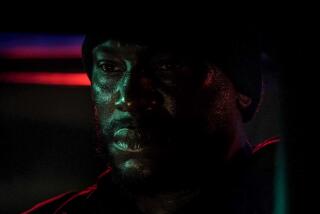Opinion: Where the 1992 riots hit exposed the reality of our city: There are two L.A.s
To the editor: On April 29, 1992, the day when four Los Angeles Police Department officers were acquitted in the Rodney King beating trial, I was teaching at an L.A. Unified School District campus just west of downtown. (“Twenty five years later, how did the riots transform L.A.? And has the city changed enough?” Opinion, April 28)
At 4 p.m., our plant manager came into the room and whispered to my teaching partner and me, “All innocent.” I was told to go home.
A gas station near the 10 Freeway was already in flames when I tried to merge into traffic. The city was in flames, and the smoke cleared only when I passed the 405 Freeway.
Coming through the McClure Tunnel at Pacific Coast Highway, I encountered an entirely different place. People were biking along the beach, totally oblivious to what was happening 25 minutes to the east.
This was the moment of reality for me. As a native of Los Angeles, I realized that we live in a bubble on the Westside, and unless the two communities could develop a new mutual understanding, Los Angeles would never recover.
Judi D. Welch, Pacific Palisades
..
To the editor: I’ve tried to avoid anything about the Los Angeles riots for a quarter of a century, but this year it has become impossible because it’s the 25th anniversary.
Some people are saying that very little has changed since the riots. It’s all a matter of your perspective.
There are more than 20 unsolved homicides from the riots. My son is one of those unsolved homicides. He (a private citizen) was trying to save a burning building.
My life changed forever because of those riots. There are many others who feel the same way because of the unsolved killings. It’s up to everyone to make those changes — I’ve had to.
Linda Loding, Pasadena
..
To the editor: What an ironic juxtaposition: reflections on 1992 riots from LAPD Chief Charlie Beck at the same time that the police union and Mayor Eric Garcetti are hoping voters will not turn out on May 16 to vote against their Charter Amendment C.
This initiative would give police officers accused of misconduct the option of choosing an all-civilian panel rather than the current panel consisting of two command-level officers and one civilian to hear the case. Statistics have shown that civilians on the panels have voted more leniently than the command-level police officers.
That’s a pretty sneaky way to give the appearance of increasing public involvement in stopping police misconduct while actually letting more officers off the hook.
Cathy O’Krent, Sherman Oaks
Follow the Opinion section on Twitter @latimesopinion and Facebook
More to Read
A cure for the common opinion
Get thought-provoking perspectives with our weekly newsletter.
You may occasionally receive promotional content from the Los Angeles Times.










